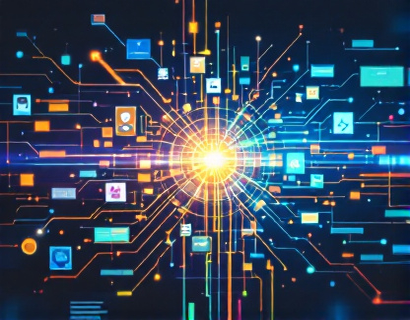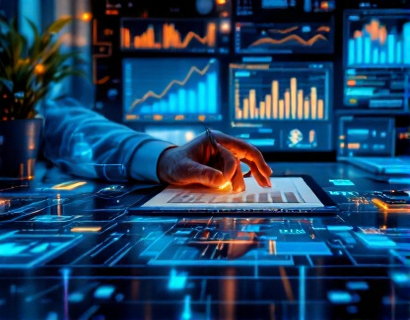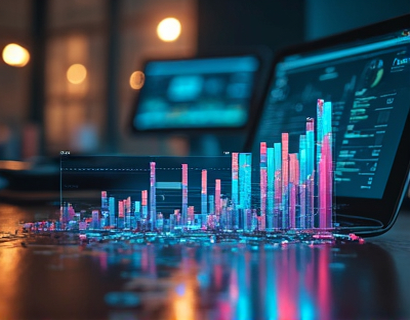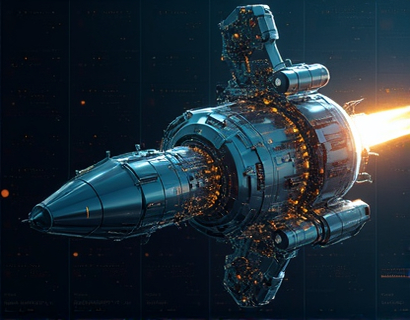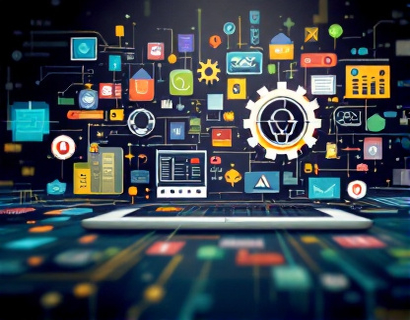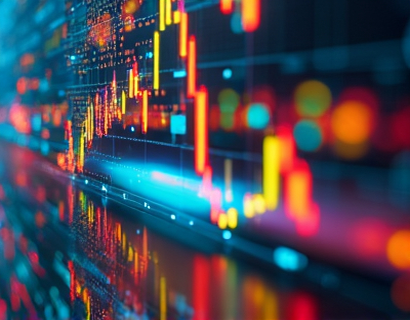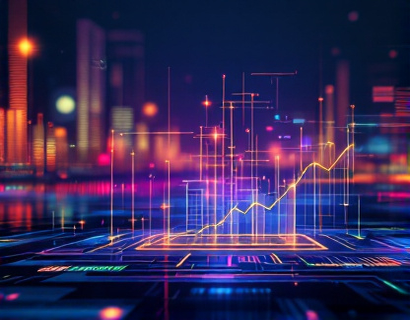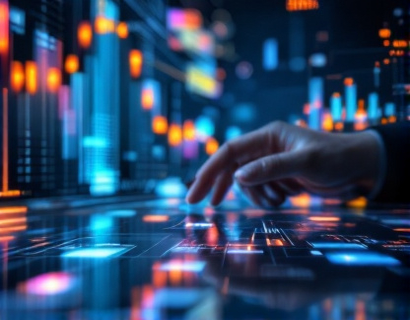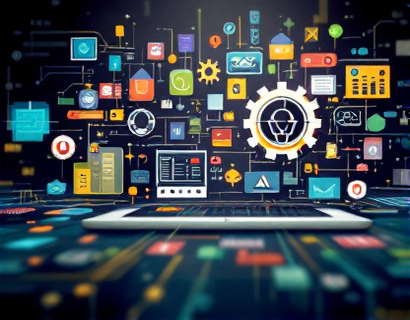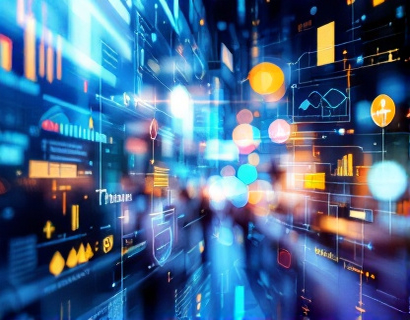AI and Crypto: Revolutionizing Finance and Technology with Next-Gen Innovations
The intersection of artificial intelligence (AI) and cryptocurrency is ushering in a new era of financial and technological innovation. This fusion is not only transforming traditional banking and investment paradigms but also creating novel digital solutions that enhance user experiences and redefine industry standards. As crypto enthusiasts and tech-savvy innovators continue to explore the potential of these technologies, it's crucial to understand how their combined power is reshaping the landscape of FinTech.
The integration of AI into cryptocurrency systems brings a level of sophistication and efficiency previously unimaginable. AI algorithms can analyze vast amounts of data in real-time, identifying patterns and making predictions that human analysts might miss. In the context of crypto, this means more accurate market predictions, enhanced security measures, and personalized financial services. The synergy between AI and crypto is creating a robust ecosystem that is both resilient and adaptive to changing market conditions.
Enhanced Market Predictions and Trading Strategies
One of the most significant impacts of AI on cryptocurrency is in the realm of market predictions. Traditional trading relies heavily on historical data and basic statistical models, which often fail to capture the complex dynamics of crypto markets. AI, however, can process and analyze vast datasets, including news articles, social media sentiment, and transaction patterns, to forecast market movements with greater accuracy. This capability allows traders to make more informed decisions, potentially leading to higher returns and reduced risks.
Automated trading bots powered by AI are becoming increasingly popular in the crypto space. These bots can execute trades 24/7 based on predefined algorithms that take into account multiple factors such as market volatility, price trends, and news events. The precision and speed of AI-driven trading bots give them a competitive edge over manual trading, making them a valuable tool for both individual investors and institutional players.
Improved Security and Fraud Detection
Security has always been a paramount concern in the crypto world, and AI is playing a crucial role in enhancing the safety of digital assets. Machine learning algorithms can detect unusual patterns and anomalies in transaction data, flagging potential fraudulent activities in real-time. This proactive approach to security helps prevent losses and builds trust among users.
Blockchain technology, the backbone of cryptocurrencies, is inherently secure but not immune to attacks. AI can analyze blockchain data to identify vulnerabilities and predict potential attack vectors. By continuously learning from new data, AI systems can adapt to evolving threats, ensuring that crypto platforms remain secure and reliable.
Personalized Financial Services and User Experiences
The combination of AI and crypto is also revolutionizing how financial services are delivered. Personalization is key in the modern financial landscape, and AI enables a level of customization that traditional systems cannot match. By analyzing user behavior, preferences, and financial goals, AI can tailor financial products and services to individual needs.
For instance, AI-powered robo-advisors can create and manage customized investment portfolios based on a user's risk tolerance and investment horizon. These advisors continuously monitor market conditions and adjust portfolios as needed, providing a hands-free and efficient investment experience. Similarly, AI-driven credit scoring models can assess creditworthiness more accurately by considering a broader range of data points, making financial services more accessible to a wider audience.
Smart Contracts and Decentralized Applications
Smart contracts, self-executing contracts with the terms directly written into code, are a cornerstone of blockchain technology. AI enhances the functionality and reliability of smart contracts by adding layers of intelligence and automation. AI can help in drafting smart contracts by analyzing legal texts and identifying potential loopholes, ensuring that the contracts are robust and enforceable.
Decentralized applications (dApps) built on blockchain platforms benefit greatly from AI integration. AI can power complex functionalities within dApps, such as predictive analytics, natural language processing, and image recognition. This enables the creation of sophisticated applications that offer advanced features and user experiences, from decentralized finance (DeFi) platforms to gaming and social media applications.
Challenges and Considerations
While the potential of AI and crypto is immense, there are several challenges and considerations that need to be addressed. One of the primary concerns is regulatory compliance. The crypto space is still largely unregulated, and the integration of AI adds another layer of complexity. Ensuring that AI-driven crypto solutions comply with existing regulations and adapt to new ones is crucial for their widespread adoption.
Another challenge is the ethical use of AI. As AI systems become more autonomous, issues related to bias, transparency, and accountability come to the forefront. It's essential to develop AI algorithms that are fair, explainable, and aligned with ethical standards to maintain user trust and prevent misuse.
Future Prospects and Innovations
The future of AI and crypto is bright, with numerous innovations on the horizon. One exciting area is the development of AI-driven decentralized autonomous organizations (DAOs). DAOs combine the decentralized nature of blockchain with AI's decision-making capabilities, enabling communities to govern and manage projects autonomously. This could lead to more democratic and efficient organizational structures in various sectors.
Another promising development is the integration of AI with quantum computing. Quantum computers have the potential to solve complex problems that are currently infeasible for classical computers. When combined with AI, this synergy could revolutionize fields such as cryptography, optimization, and drug discovery, further enhancing the capabilities of crypto systems.
Conclusion
The fusion of AI and cryptocurrency is not just a trend but a transformative force reshaping the future of finance and technology. By leveraging the strengths of both domains, we are witnessing the emergence of innovative solutions that enhance security, personalization, and efficiency. As the technology continues to evolve, it's essential for stakeholders to navigate the challenges thoughtfully and embrace the opportunities that this powerful combination offers. The next generation of financial and technological advancements will undoubtedly be shaped by the synergy between AI and crypto.



